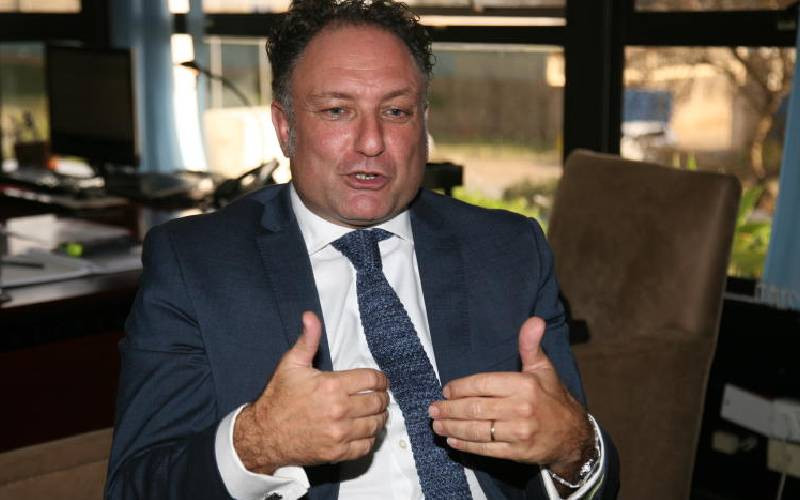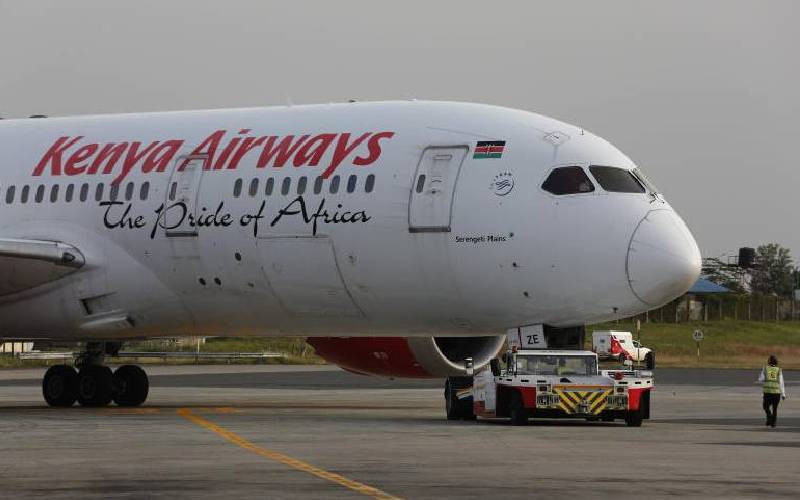Financial results for the first three months of this year from Kenya Commercial Bank and Equity Group Holdings continue to demonstrate the dominance of retail institutions in the banking sector.
The two banks largely serve the mass market and have seen non-interest income — money earned from deposit and transaction fees — become one of the key profit drivers, and are betting on technology and expansion to remain at the top.
KCB posted a 12 per cent increase in profit before tax of Sh6.2 billion, retaining its position as the most profitable bank in Kenya. Its closest rival, Equity Group, recorded a 13 per cent increase in pre-tax profits to Sh6.1 billion.
While Equity has been riding on its investments in mobile and agency banking, payment systems, money transfers and diaspora remittances, KCB has relied on non-funded income streams to grow its bottom line.
“KCB is gearing up to deliver balance sheet growth and shareholder wealth in the short to medium term by leveraging on technology and partnerships with telecommunications companies to launch innovative products,” said Joshua Otiende, a research analyst at ABC Capital.
KCB recently launched the KCB-M-Pesa Account, which allows customers to access loans based on their credit history, while also enabling them save and earn interest.
Touted as the next big thing in deepening financial inclusion, the facility hit a milestone when it signed up one million accounts in just four weeks.
CUSTOMER BASE
KCB is expected to tap into the nearly 14 million-strong M-Pesa customer base to push up revenues. In the last year, KCB has seen its customer transactions on M-Pesa triple to Sh125 billion, with the volume of transactions growing from 10,000 a day to 100,000.
“This platform opens up the KCB loan book to small and middle-level business enterprises where users can borrow from as little as Sh50 to Sh1 million. The deal gives KCB access to M-pesa’s millions of customers who actively use the service,” said Mr Otiende.
The Government has also nominated KCB as one of the banks it will partner with in financing a 10,000-kilometre road network to be completed within three years.
The annuity project allows contractors to borrow up to Sh260 billion (KCB’s loan book as at December 2014 was Sh283 billion) from commercial banks to build roads in remote areas.
“This exposes the bank to a huge income stream,” said Otiende.
Equity Group, on the other hand, will be relying on Norfund and Norfinance, its anchor shareholders, to further strengthen and diversify its capital base as it executes its Equity 3.0 growth strategy.
“Balance sheet performance remained robust while interest income was subdued as margins faced pressure, mainly from lower lending rates, stickiness of cost of deposits and increased contribution of foreign currency loans,” said Faith Waitherero, an analyst at Standard Investment Bank.
She said Equity’s non-interest revenue was the key revenue driver, riding on increased activity in agency outlets as well as improved diaspora remittances.
“Going forward, Equity Bank is likely to compensate for declining margins through strong balance sheet growth and increased contributions in non-interest revenue,” said Ms Waitherero.
 The Standard Group Plc is a multi-media organization with investments in media
platforms spanning newspaper print operations, television, radio broadcasting,
digital and online services. The Standard Group is recognized as a leading
multi-media house in Kenya with a key influence in matters of national and
international interest.
The Standard Group Plc is a multi-media organization with investments in media
platforms spanning newspaper print operations, television, radio broadcasting,
digital and online services. The Standard Group is recognized as a leading
multi-media house in Kenya with a key influence in matters of national and
international interest.
 The Standard Group Plc is a multi-media organization with investments in media
platforms spanning newspaper print operations, television, radio broadcasting,
digital and online services. The Standard Group is recognized as a leading
multi-media house in Kenya with a key influence in matters of national and
international interest.
The Standard Group Plc is a multi-media organization with investments in media
platforms spanning newspaper print operations, television, radio broadcasting,
digital and online services. The Standard Group is recognized as a leading
multi-media house in Kenya with a key influence in matters of national and
international interest.








